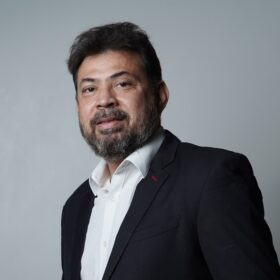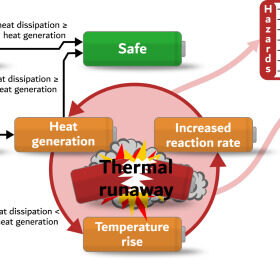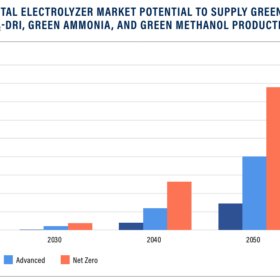HeliaSol is an extremely lightweight, very thin and flexible solar film that is produced in an energy-efficient, roll-to-roll process in Germany. Equipped with a self-adhesive backing, the film can be applied directly to a variety of surfaces without further assembly efforts, and without affecting the structure underneath. With the project in Duisburg, the solar films were glued directly onto the metal facade of the warehouse. Ventilation or cooling is not necessary as the films do not lose power or efficiency at high temperatures, unlike crystalline solar technology.
The solar films cover an area of approximately 185 m², and generate about as much energy as a 5-person household would consume annually. Due to the efficient use of materials and manufacturing process, the solar films produce 80 times more energy over their lifecycle than is needed to produce them. When compared to the CO2 emissions of various other types of energy production, Heliatek’s solar films clearly provide the lowest CO2 footprint, with 20g CO2 per kWh.
Working together to make the energy transition
The construction of the solar facade is one of four areas of cooperation and a large number of measures implemented between innogy and duisport for a successful sustainability strategy. Duisburger Hafen AG is the operator of the world’s largest inland port and intends to position itself as a major hub for the energy transition. That is why a strategic partnership with innogy was established in 2016, with the goal to jointly test new methods of energy conservation, and using renewable energy for major industries and in logistics.
Alexander Garbar, Project Manager Corporate Development, Duisburger Hafen AG, states: “With completion on this, we have achieved yet another sub-project. Heliatek’s photovoltaic solution is really fascinating, and we are pleased to have brought a German manufacturer on board. We are curious what the outcomes will be in the coming months.”
After the biogas plant in Bergheim-Paffendorf, and the façade installation at the Lechwerke in Augsburg, a third mutual project between Heliatek and investor innogy has completed. With the inauguration of a new production facility in 2020, Heliatek is committed to actively shaping the future of a decentralized and decarbonized future. Following a successful test run on the Duisburg port site alone offers potential to use up to 10 million m² of façade and roof space for the production of solar energy. Since 2016, innogy SE has worked in cooperation with Heliatek GmbH, and has actively supported the preparation of Heliatek’s market entry since then.
Martin Neweling, Project Manager Group Strategy innogy SE, states: “We are pleased to have created another eco-friendly solar façade with Heliatek in Germany. The building exterior of duisport received a second skin, one that generates energy. With each new project, we gain experience in installation, and also in terms of handling. The current short installation time of just a few minutes per film is impressive.”
Leading to sustainability
With the Federal Government’s goals of achieving a virtually climate-neutral standard of buildings by 2050, the premises for this industry are set in Germany. Buildings cause about one third of all CO2 emissions and total energy consumption in Germany. One method of energy reduction for buildings, for example, lies in energy-oriented building renovations. This allows for a significant impact on the reduction of CO2 emissions. Heliatek organic solar films, and especially the ready-to-use solar film HeliaSol, provide an efficient and highly effective solution.





